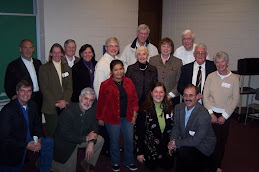
Dear Peter Ignotus,
When I resigned as Pastor of a parish and started pursuing a secular career and life, I thought that my priesthood was over. Now a year later, a couple has sought me out and asked me to “do” their wedding. Now, I wonder, should I? Could I? What do you think?
Gone, But Not Forgotten.
Dear Gone, But Not Forgotten. Your vocation was a calling by God, recognized and celebrated by the people of God (the Church), and certified by the institutional Church. Resigning your commission as a deputy of the institution does not nullify the call of God or the Church - the people of God. You are still being called (literally, on the phone) to continue your ministry and this is a validation of your continued priesthood.
Should you? This couple has sought you out because they believe you are the best person available to bless their union. If you assume this role, give them your best to prepare them for the wedding – and marriage. Most regional Pre-Cana programs are still open to them. Also, you should discuss any possible future ramifications that may come from their marriage not being “officially recognized” by Church authorities. Most of all, make it a celebration of God’s love and presence.
Could you? Remember that the couple themselves are the ministers of the sacrament, and any priest is simply invited to be the state’s, God’s, and the community’s witness. That being said, you want to make sure that you would be a legal witness. Each state dictates the qualifications of the officiant. In some states anyone (literally) can officiate, other states have more stringent rules. So to ensure proper certification, some “resigned” or “non-canonical” priests have joined groups like Celibacy Is The Issue (CITI)
http://www.rentapriest.com/ or the Federation of Christian Ministries (FCM)
http://www.federationofchristianministries.org/ for support and certification.
Would such a wedding be uncommon? Not according to studies. One third of Catholics do not get married “in the Church”, and the reasons are varied (Cara Study, 2007),
http://www.usccb.org/laity/marriage/marriage_report.pdfFewer priests, tighter Mass and Confession schedules and clergy language deficiencies (English, Spanish, etc.) shrink options for young couple even seeking a Church wedding. Some pastors will not accommodate Friday evening or Sunday afternoon weddings, some will deny the sacrament to cohabiting engaged couples (most are), even when they have children together, unless they retreat to exclusive domiciles for six months. Some parishes enforce parish membership rigidly. Outdoor ceremonies are verboten.
Many Catholics do divorce from even “Church” marriages, and most remarry without the benefit of an annulment. Even if an annulment process made sense, it is often deemed long, expensive, intrusive and arbitrary. The fact is, over 90% of annulment petitions are granted to those who endure the process anyway, so why not resolve the annulment question using an “internal forum” approach?
Some couples presenting themselves to me are spiritually naive, but others have lost their faith, not in God, but in the institution of Church which seems to treat them indifferently and without compassion. They see the hierarchy’s treatment of women, gays, dissenters, and reform advocates as demeaning.
Many of the weddings I do now are for the same kinds of people I would (reluctantly) chase out the rectory door in days past. I even have referrals from priests and deacons (sometimes their own children) who couldn’t or wouldn’t get married “in Church”, but wanted their marriage celebrated as a holy event and blessed in a meaningful ceremony. Often parents prefer having a married priest preside over their children’s wedding than to see them getting married by some accommodating Protestant minister or Justice of the Peace, lest they be lost to Catholicism altogether.
Hopefully this brief response has given you some things to think and pray about. Perhaps the sisters and brothers of WEORC can offer some of their wisdom and experience. Share your thoughts at
weorc@comcast.net .
Peter


